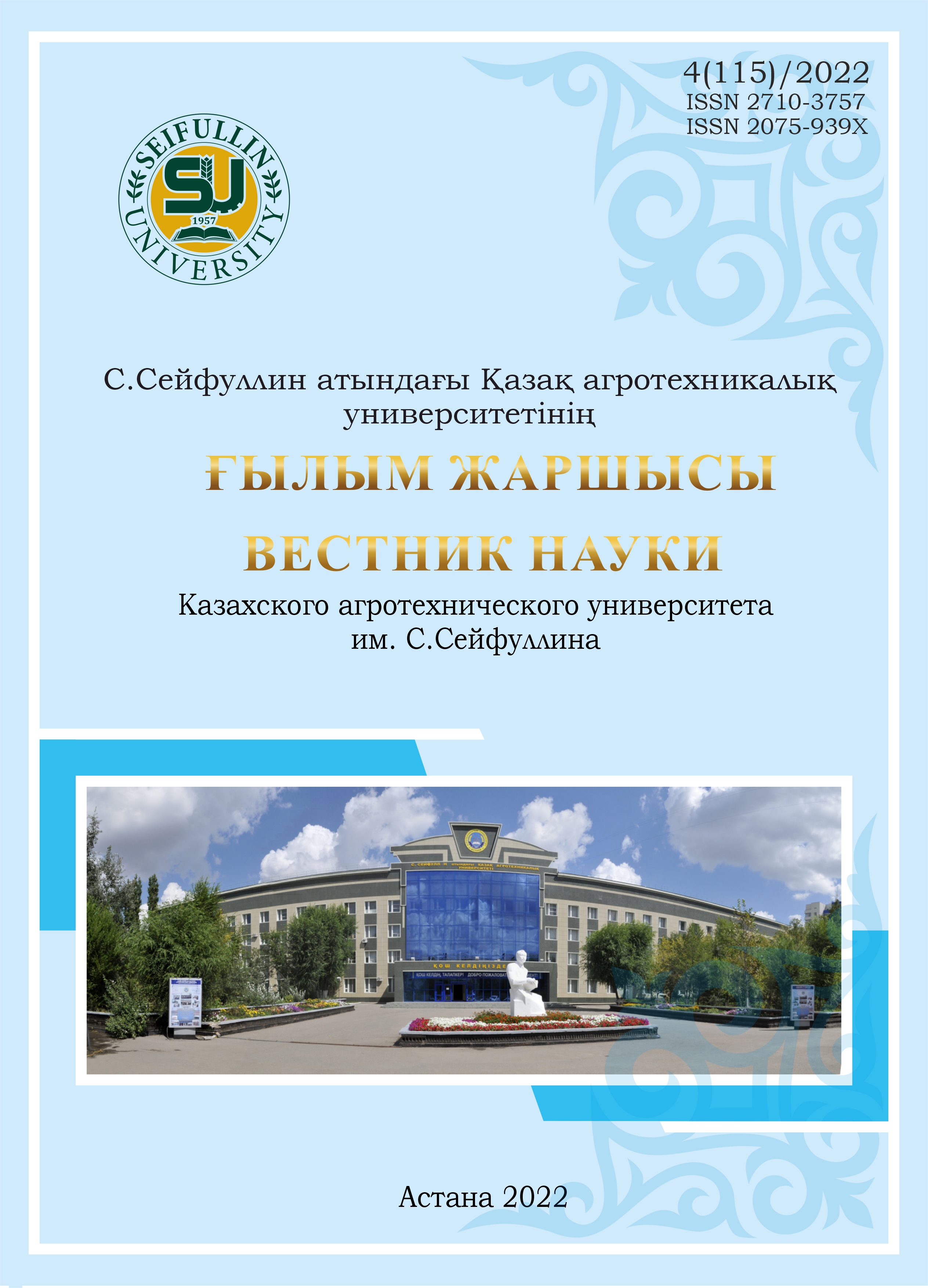THE EFFECT OF FERTILIZERS ON THE PRODUCTIVITY OF SOYBEANS GROWN IN TURKESTAN REGION
the number of beans; soybean; microfertilizer; productivity; grade; fertilizer;
DOI:
https://doi.org/10.51452/kazatu.2022.4.1224Keywords:
the number of beans; soybean; microfertilizer; productivity; grade; fertilizer;Abstract
This article discusses two types of soybean plant nutrition - the use of phosphorus-potassium fertilizers and phosphorus-potassium fertilizers with microfertilizers. At present, it is important not only to make efforts towards increasing the productivity of soybean cultivation, but it is equally important to improve the quality of the resulting products by optimizing plant nutrition. One of the valuable protein-oil crops is soybean. Cultivation of soybeans has a large production potential, and is explained by the highest yield of protein and oil per unit area. About 400 types of food products are produced from the above-mentioned oilseed. The studies were carried out on the experimental site of the South-Western Research Institute of Animal Husbandry and Plant Growing LLP. It was established that the number of seeds in the variety " Lastochka " on the control variant was 1766.4 pcs/m2, in the variety "Akku" - 2097.6 and in the variety "Galina" - 1967.6 pcs/m2. In the variant of the use of phosphorus-potassium fertilizers and trace elements MoВ, the excess of the number of seeds was, respectively, for the variety "Lastochka" by 101.6%; in the variety "Akku" by 103.0% and in the variety "Galina" by 103.6%.

